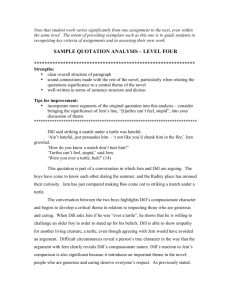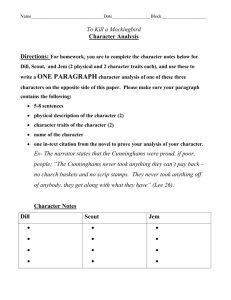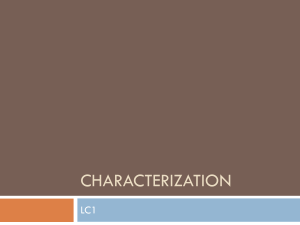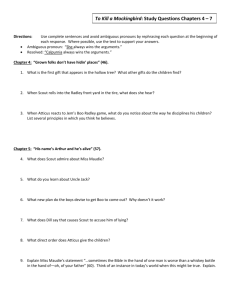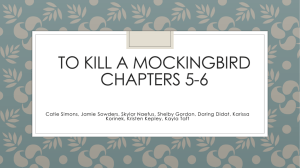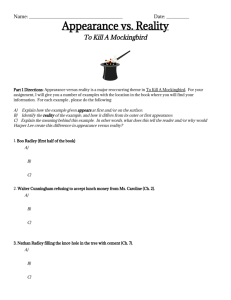Note that student work varies significantly from one assignment to... the same mark range. The intent of providing samples such...
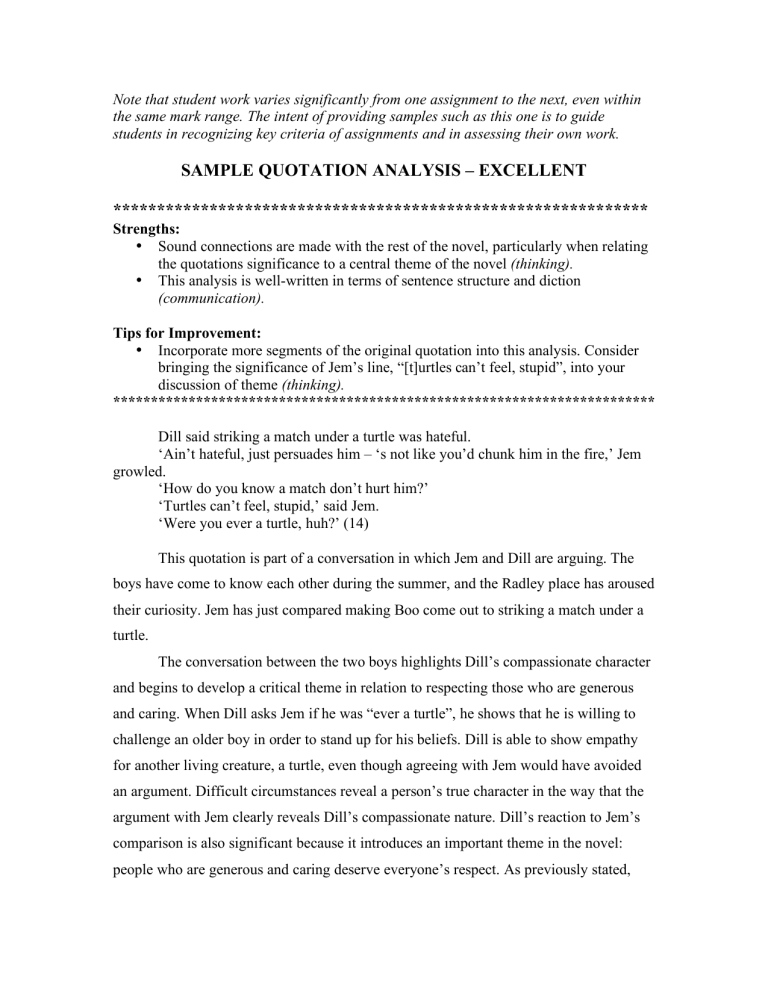
Note that student work varies significantly from one assignment to the next, even within the same mark range. The intent of providing samples such as this one is to guide students in recognizing key criteria of assignments and in assessing their own work.
SAMPLE QUOTATION ANALYSIS – EXCELLENT
*************************************************************
Strengths:
• Sound connections are made with the rest of the novel, particularly when relating the quotations significance to a central theme of the novel (thinking).
• This analysis is well-written in terms of sentence structure and diction
(communication).
Tips for Improvement:
• Incorporate more segments of the original quotation into this analysis. Consider bringing the significance of Jem’s line, “[t]urtles can’t feel, stupid”, into your discussion of theme (thinking).
************************************************************************
Dill said striking a match under a turtle was hateful.
‘Ain’t hateful, just persuades him – ‘s not like you’d chunk him in the fire,’ Jem growled.
‘How do you know a match don’t hurt him?’
‘Turtles can’t feel, stupid,’ said Jem.
‘Were you ever a turtle, huh?’ (14)
This quotation is part of a conversation in which Jem and Dill are arguing. The boys have come to know each other during the summer, and the Radley place has aroused their curiosity. Jem has just compared making Boo come out to striking a match under a turtle.
The conversation between the two boys highlights Dill’s compassionate character and begins to develop a critical theme in relation to respecting those who are generous and caring. When Dill asks Jem if he was “ever a turtle”, he shows that he is willing to challenge an older boy in order to stand up for his beliefs. Dill is able to show empathy for another living creature, a turtle, even though agreeing with Jem would have avoided an argument. Difficult circumstances reveal a person’s true character in the way that the argument with Jem clearly reveals Dill’s compassionate nature. Dill’s reaction to Jem’s comparison is also significant because it introduces an important theme in the novel: people who are generous and caring deserve everyone’s respect. As previously stated,
Boo Radley has been compared to a turtle. While seeking privacy, neither the turtle nor
Boo harm anybody. At this point in their lives, the children’s biased viewpoints prevent them from seeing Boo as caring or generous, but future events gradually reveal Boo and others to be truly generous and caring, setting up the central metaphor of the novel: the comparison of mockingbirds to various characters, including Boo. This progression begins with Boo being compared to a turtle, and it culminates much later when Scout realizes that making Boo’s heroism public would be “like shootin’ a mockingbird”(276).
Scout’s comparison conveys her understanding of why Boo deserves respect, as she clearly sees Boo for who he is. Thus, Jem and Dill’s conversation reveals Dill’s compassion and begins to develop the theme regarding the importance of respecting those who are generous and caring.
Work Cited*
Lee, Harper. To Kill a Mockingbird. New York City: Warner Books Inc., 1982. Print.
*A works cited page is typically not required for a quotation analysis. The purpose of this reference is to clarify the source, as many editions of the novel are out there.
